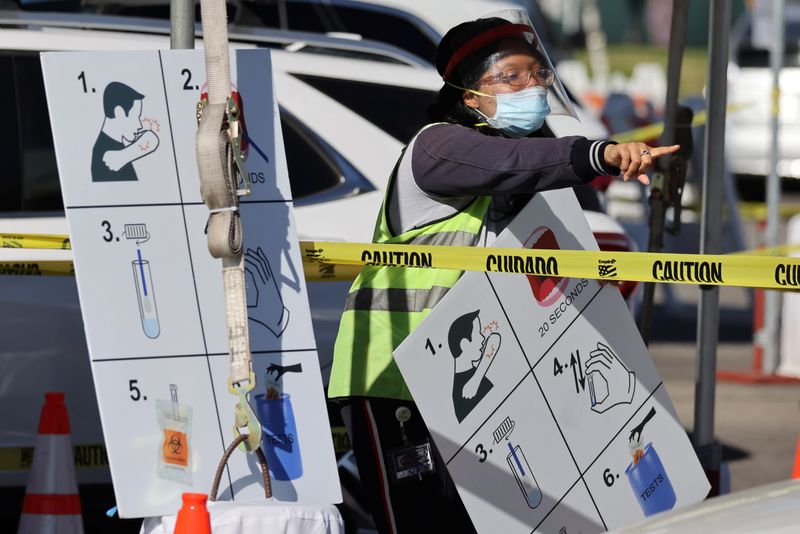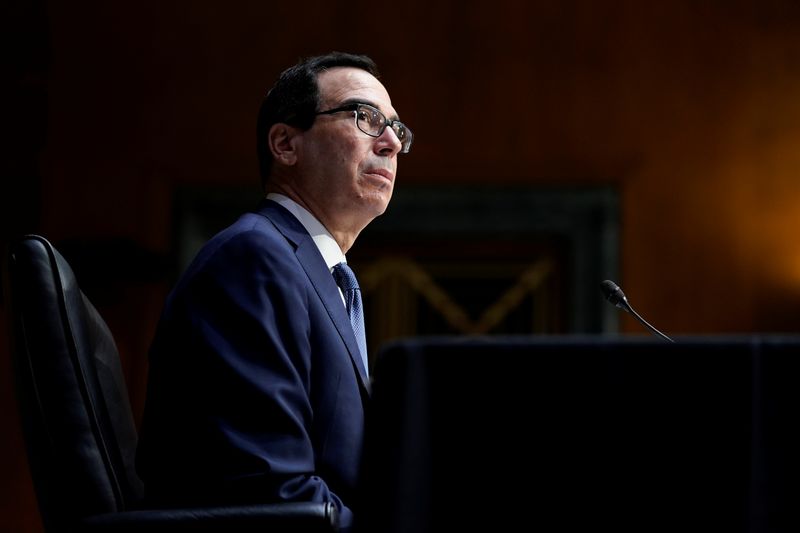By David Morgan and Richard Cowan
WASHINGTON (Reuters) - Republicans and Democrats in Congress remained unable to reach agreement on fresh relief for a pandemic-hit U.S. economy on Wednesday, however there were early signs that a $908 billion bipartisan proposal could be gaining traction as a negotiating tool.
On Wednesday, Treasury Secretary Steven Mnuchin said outgoing President Donald Trump supported a different Republican proposal put forth by Senate Majority Leader Mitch McConnell after McConnell on Tuesday rejected the bipartisan package.
No. 2 Senate Republican John Thune, however, told reporters that the bipartisan plan represented "progress" and "I think hopefully it’ll be helpful in us getting a deal done."
House of Representatives Speaker Nancy Pelosi and Senate Democratic Leader Chuck Schumer urged McConnell, a Republican, to immediately engage in negotiations, using the $908 billion initiative as a foundation.
McConnell aides did not immediately comment.
McConnell's own outline is very close to the legislation that the Senate leader has been touting for months and was rejected by Democrats, according to one Senate Republican source. The plan includes $332.7 billion in new loans or grants to small businesses, according to a document provided to Reuters.
"The president will sign the McConnell proposal that he put forward yesterday. We look forward to making progress on that," Mnuchin told reporters on Capitol Hill.
But Schumer blasted the Republican effort for excluding Democrats, who control the U.S. House of Representatives.
"The Republican leader should not waste the Senate's time on another inadequate, partisan proposal and instead should sit down with Democrats to begin a true bipartisan effort to quickly meet the needs of the country," Schumer said in a speech on the Senate floor. He noted that the McConnell proposal includes liability protection for businesses that Democrats reject.
Adding to the pressure, the two parties face a Dec. 11 deadline to pass a $1.4 trillion budget or risk a shutdown of the government as the COVID-19 crisis worsens across the United States.
Senate Appropriations Committee Chairman Richard Shelby, speaking to reporters, raised the possibility that a short-term extension of existing funds might be needed if there is no deal by Dec. 11.
McConnell, who has been pushing a $500 billion approach to coronavirus aid that Democrats reject, circulated new draft legislation on Tuesday after a group of Republican and Democratic lawmakers unveiled the $908 billion bipartisan package.
House Majority Leader Steny Hoyer, that chamber's No. 2 Democrat, told reporters on Wednesday he hoped the House and Senate leaders could agree on a coronavirus aid bill by the end of this weekend that would be folded into the budget package.
"I am hopeful that in the next few days that we will be able to come to an agreement on a bill that responds to the major crisis, at least in the short term," Hoyer said.

The Democrat said such a measure should include money for state and local governments which have been struggling through the pandemic, an idea Republicans largely have opposed.
